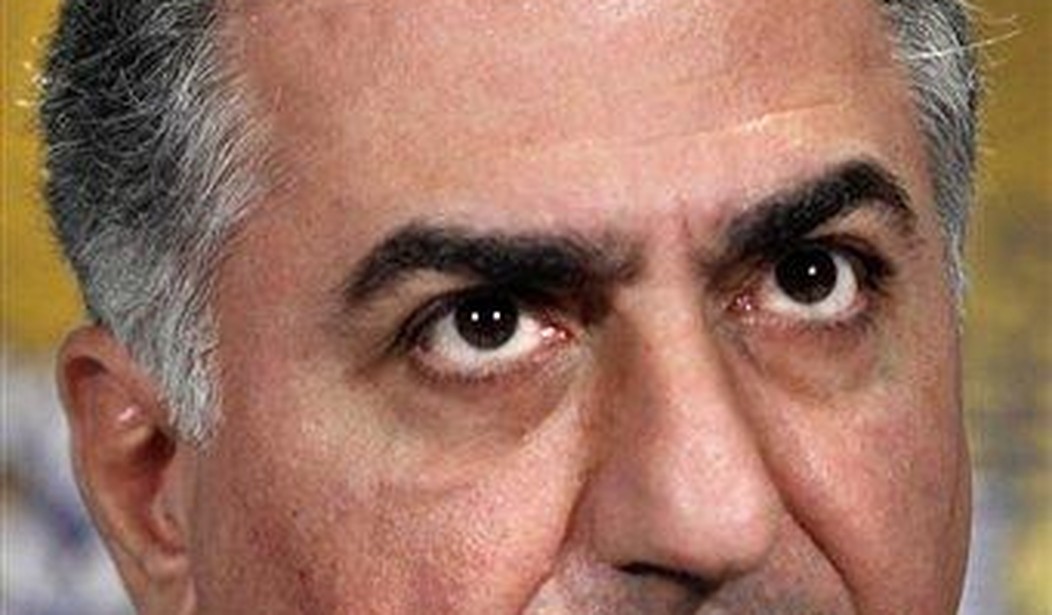The past six months have witnessed a sweeping popular uprising in Iran, marking an unmistakable beginning of an end to the oppressive theocracy that has governed the country for four decades.
However, amidst the persistent protests, a concerning phenomenon has emerged with uninvolved individuals seeking to position themselves as the voice of the Iranian people. These figures, either linked to the former deposed dictatorship, or previously associated with the so-called reformist faction of the ruling tyranny, or celebrities within or outside of Iran, have professed that the regime will eventually implode under its own weight. Such behavior presents a significant challenge to the quest for meaningful democratic change and could impede the progress of the nationwide uprising that has shaken the medieval regime to its core.
Prominent among these newcomers is Reza Pahlavi, the son of the deposed and reviled former dictator, Mohammad Reza Pahlavi, whose fame stems solely from his father's infamy. Despite the deep-seated repugnance toward the Pahlavi dynasty's authoritarian rule, his son has sought to position himself as a proponent of the monarchy's restoration, a quixotic endeavor with little chance of success.
Moreover, Reza’s strategy to change the regime is highly flawed, as he has been relying on the elements of the Islamic Revolutionary Guard Corps (IRGC) and the Basij to switch sides and support him, which is highly unlikely to happen given their deeply embedded position in the current regime and vested interest in maintaining the status quo.
Recommended
Pahlavi and his handful of associates have also called for a "set aside differences and work on disagreements later" approach, which is a flawed strategy that recalls Khomeini's approach in the late 1970s and is a concerning case of déjà vu for many Iranians. Transparency is crucial in forging unity among opposition groups, as it enables the public to gauge each group's stance on key issues. Reza Pahlavi's recent claim of seeking a "republican monarchy" is highly ludicrous, especially given the Iranian people's profound abhorrence for the Pahlavi dynasty.
Alongside a mutual dedication to a free and democratic republic, as well as the separation of religion and state, the matter of Iran's national minorities also constitutes a crucial element in the development of a viable democratic future for the country." However, Reza Pahlavi and his supporters have refused to acknowledge this issue, instead dismissing national minorities as "tribes and clans" and accusing them of separatism, a stance that echoes the policies of his father and grandfather.
The recent invitation of Reza Pahlavi and his ilk to the platform of the Munich Security Conference (MSC) has provided a gift to the Iranian regime to suggest that those supporting the Iranian people’s protests intend to restore the monarchy and that MSC endorses the persistence of authoritarianism and corruption, the hallmarks of Reza’s father's monarchical reign in Iran.
Also, the remarks at the Conference by Masih Alinejad, a journalist who until 2009 supported the regime's so-called reformist faction, to undermine the Mujahedin-e Khalq (MEK) that has been waging a struggle against the regime for over four decades and her lashing out at US and European lawmakers for supporting the group, was a political boon for the regime and exposed the hollowness of their call for unity.
What’s more, the invitation was a grave political error, which not only harmed MSC’s own reputation, but also had an adverse impact on the brave protesters in Iran, who are putting their lives on the line to establish a secular and democratic republic. In such a republic, no individual would enjoy privilege based on religious belief or birthright, let alone the power to rule the country for generations.
The international community must support the Iranian people in their quest for political change. This entails the recognition of Iranian democratic groups, such as the National Council of Resistance of Iran (NCRI), which is the most credible and prominent of these organizations. The NCRI's President-elect, Maryam Rajavi, has unveiled a comprehensive Ten-Point Plan for Iran's future that emphasizes free elections, universal suffrage, gender parity, separation of religion and state, an end to capital punishment, and a non-nuclear Iran.
Ultimately, the future of Iran rests in the hands of the Iranian people. They have shown incredible courage and resilience in their ongoing struggle for political change. The international community must stand with them and support their efforts to build a democratic and prosperous future for their country. Only then can the Iranian people realize the full potential of their rich history and culture and contribute to the progress and stability of the wider Middle East region.
Ken Blackwell is the former U.S. Ambassador to the United Nations Human Rights Commission.

























Join the conversation as a VIP Member